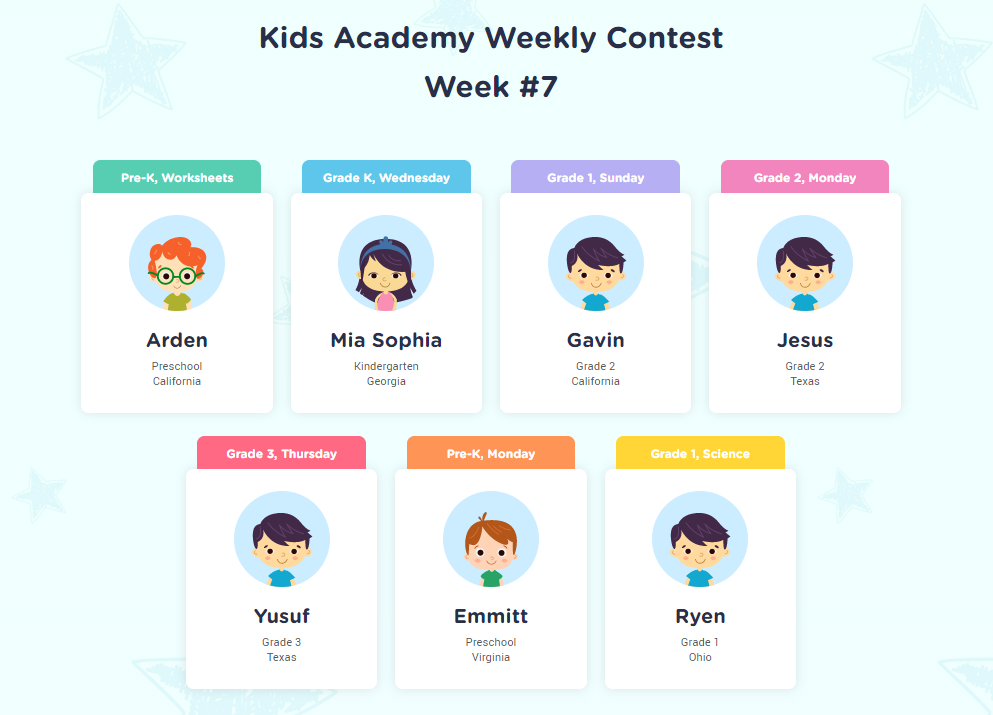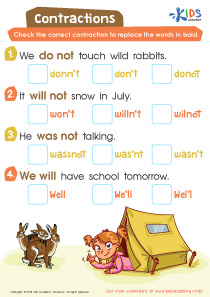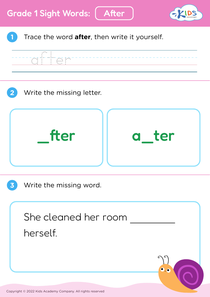1.10b Economic Systems worksheets With Answers for Grade 1
2 filtered results
-
From - To
Discover engaging and informative "1.10b Economic Systems Worksheets with Answers for Grade 1!" These educational resources are designed to help young learners understand essential concepts of economic systems, including needs, wants, goods, and services. Our printable worksheets are tailored for first-grade students, making complex topics accessible and enjoyable. Each worksheet is accompanied by an answer key, ensuring teachers can effectively guide discussions and reinforce learning. Ideal for classroom activities or additional practice at home, these resources support skill development in social studies through interactive exercises. Equip your students with a foundational understanding of economics today! Download now for a fun learning experience!
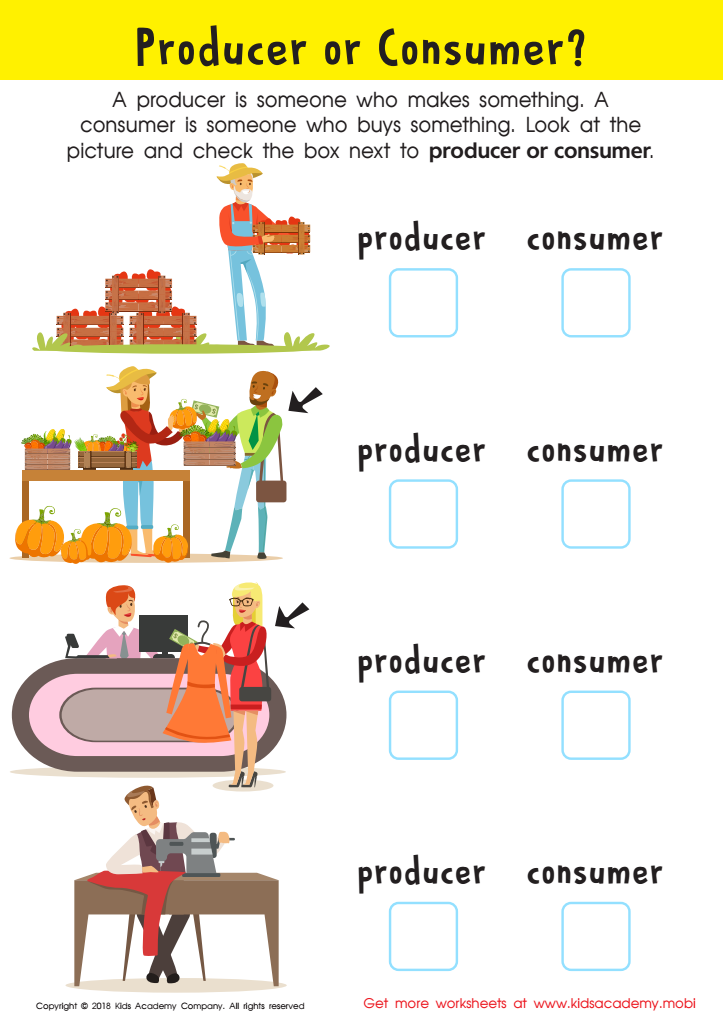

Producer or Consumer? Worksheet
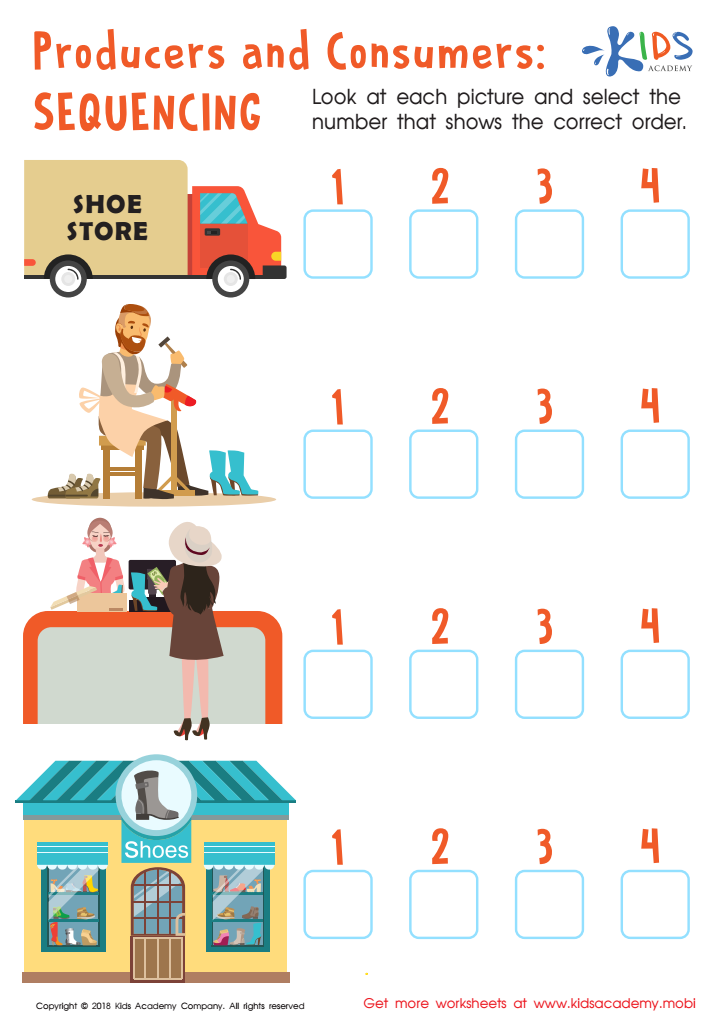

Producers and Consumers: Sequencing Worksheet
Understanding Economic Systems is essential for both parents and teachers because it lays the foundation for children's awareness of how goods and services are produced, distributed, and consumed in society. Beginning in Grade 1, introducing simple concepts of economics helps children grasp the basic idea of "neighbors helping neighbors" through trade and the benefits of cooperation.
By learning about economic systems, students can develop critical life skills such as decision-making, responsibility, and understanding value. They start to comprehend that resources are limited and choices must be made, fostering a sense of appreciation for what they have. This knowledge can help children understand that people's roles, like those of teachers, doctors, and farmers, are vital to their community's functioning.
When teachers and parents engage in activities related to economic systems—like setting up a pretend store or discussing the importance of sharing and saving—they create an environment for active learning. This involvement not only boosts students' cognitive understanding but also promotes social skills and empathy. As children learn to navigate basic economic concepts, they become better prepared to participate in and contribute positively to their communities as they grow. Ultimately, it empowers them to make informed choices in their future lives.
 Assign to My Students
Assign to My Students





